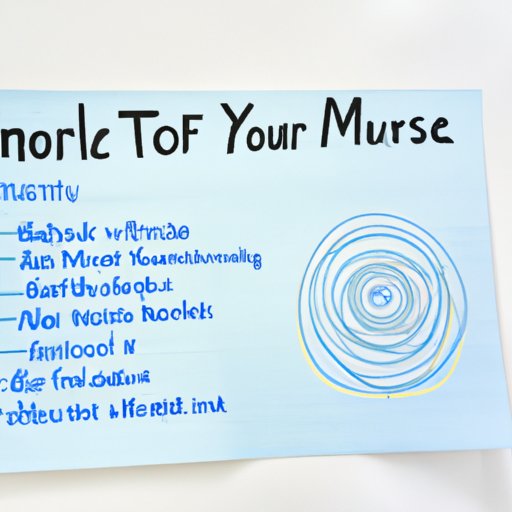
I. Introduction
Note-taking is an essential skill that can help you retain information and perform better academically or professionally. Effective note-taking can improve your memory, help you prepare for exams, and keep you organized. In this article, we will explore techniques and strategies for taking better notes, tailored to individual learning styles and preferences.
II. The Science of Note-Taking: How to Maximize Information Retention
Research suggests that information is more likely to be retained if notes are taken by hand rather than on the computer. This is because the act of physically writing enhances cognitive processes that are important for memory. Furthermore, organizing notes visually can help create connections and patterns that aid in better understanding of the information. Using symbols and colors can be particularly helpful for visual learners. By relating concepts in different ways, the note-taker can create links between them.
III. Techniques for Taking Better Notes
Several note-taking techniques can be used to enhance learning and retention. The Cornell Method involves dividing notes into sections that allow for easy recall of information. The Mind Mapping method works by linking related ideas together in a connected diagram. Outlining method allows for the hierarchical organization of notes, allowing for better comprehension. It is important to understand each of these methods and the differences between them to choose what works best for the learner. For example, visual learners might prefer Mind Mapping, while more analytical learners might prefer outlining. The chosen method should match individual preferences and style of learning to maximize the benefits of note-taking.
IV. Tips from Successful Note-Takers
Interviews with successful note-takers can provide helpful insights into good note-taking practices. One tip may be to use abbreviations or shorthand to capture key information quickly and efficiently. Another strategy is to review notes immediately after a class or meeting to check if all important points have been captured and to summarize them in a few sentences. Successful note-takers also focus on active listening and engagement during the class or meeting, as this helps in retaining information.
V. Note-Taking for Exam Success
Note-taking is an important part of exam preparation. Reviewing the notes taken during a class or meeting can help in building exam-relevant study materials. Repetition of notes and focusing on weak areas are particularly helpful to enhance retention. Flashcards and self-quizzing can be effective methods of information retrieval. Also, visual aids can aid visual learners.
VI. Note-Taking in Professional Settings
In professional settings, note-taking has to be more precise and focused, capturing only the key points of a meeting or event. Including only essential details and leaving out irrelevant information is important to avoid the cluttering of notes. An important skill is to summarize the key highlights and action items of the meeting, which can be shared with other stakeholders. Taking notes during reading or research can be improved by reading actively, taking brief notes on main arguments and themes.
VII. Conclusion
Effective note-taking is a versatile skill that can be enhanced by using tools like the Cornell Method, Mind Mapping, or outlining and tailoring the technique to individual preferences. Strategies include active listening and linking related ideas together. The chosen method should fit personal learning style and preferences to ensure maximum benefits. By applying the techniques and habits explained in this article, anyone can become a successful note-taker and improve academic or professional performance.





